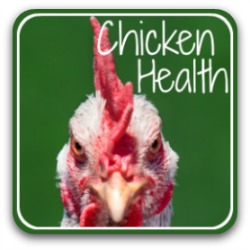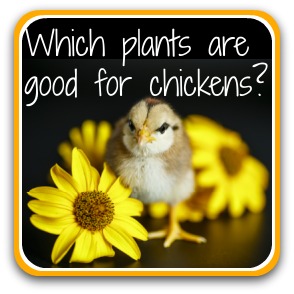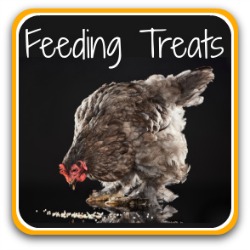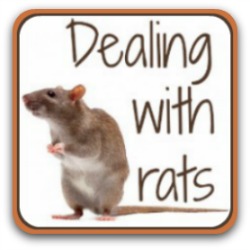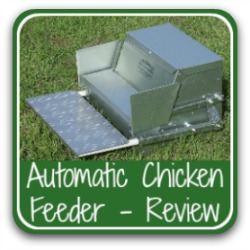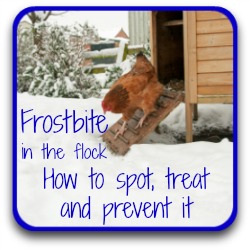Sudden Chicken Death Syndrome: why chickens sometimes seem to die randomly.
One minute you have a perfectly healthy, happy chicken, scratching, foraging, clucking as usual.
The next, she's lying lifeless in the run. No warning. No obvious cause.
It's shocking. Heartbreaking.
And it happens more often than you might think.
If you've lost a chicken and don't know why, this guide will help you understand the most common causes – and whether there's anything you might have done differently.
🪶 Featherlight Takeaways
Quick insights from this article – especially helpful if you’ve just lost a chicken suddenly.
- Sudden chicken death is sadly common, especially in roosters and meat breeds.
- Heart failure is the most likely cause, but without a necropsy it’s hard to be sure.
- Most cases can't be predicted or prevented, even with excellent care.
- Good biosecurity, diet, and housing reduce risk, although they can't eliminate it.
- You're not alone. Sudden chicken death is heartbreaking, but rarely your fault.
If you've lost a chicken in what seems to be a strange, unexplained way, this information might help you come to terms with your loss a little more easily – especially if you haven't reviewed your own biosecurity measures recently.
I lost a chicken today.
Yes, I know that's not unusual.
Anyone who keeps chickens knows it happens. Predators, disease, mites, being egg-bound – there are many reasons a chicken might die.
But this one felt different. There were no signs of illness. No attack. Nothing obvious at all.
What happened to Charlie was what many veterinarians and poultry scientists refer to as "Sudden Chicken Death Syndrome"(1).
📹 A personal story: losing Charlie.
He was one of my favourite roosters. Happy, healthy, kind to his hens, full of character.
I filmed this video just minutes after I'd found him lifeless in my coop.
There are no graphic images, just my raw reaction in the moment. No script, no makeup, just me trying to make sense of it.
If you've just lost a chicken, it might resonate with you too.
💛 Want to honour your own special chicken?
I’ve created a tribute page where you can leave a message and read what others have shared.
Possible causes of Sudden Death.
So what caused Charlie to die with no warning and no visible signs of illness or attack?
The truth is there are several possibilities. Chickens are expert at hiding symptoms, and death can come very suddenly.
Without a necropsy – the poultry version of an autopsy – it's impossible to know for sure. I did a full external check, but there were no obvious signs.
So what could it have been?
Here are some of the most common causes of sudden death in chickens, based on veterinary research(1):
- Egg-binding: can happen silently. Clearly not a cause for Charlie, who was very definitely male.
- Trampling or internal injury: possible, but unlikely. Charlie was a large, confident, and liked to roost alone, on top of a bale of hay.
- Heart attack, or heart failure: the most common cause, especially in male chickens. Charlie had no obvious signs of distress, laboured breathing or gasping for air, but this remains the most obvious cause.
 Charlie - a healthy, happy rooster with no obvious signs of illness.
Charlie - a healthy, happy rooster with no obvious signs of illness.- Research says that convulsions and extreme wing-flapping seconds before death confirm Sudden Death Syndrome as the specific cause(1). I wasn't in the coop when Charlie died, so I'll never know whether that happened.
Can heart problems cause it?
Sudden chicken death is often seen in commercially raised broiler hens which are bred to grow rapidly and reach slaughter weight within weeks. The excess weight puts extreme stress on the heart, which simply gives out.
Clearly that wasn't the case for Charlie. He was part of my small, backyard flock, raised naturally, gaining weight gradually over the ten months since he hatched.
But I still considered the most common triggers in industrial flocks:
- Excessive light: commercial birds often live under constant artificial light to keep them more productive. My chickens have no artificial light in their coop.
- High glucose diet: broilers are fed calorie-dense pellets to accelerate growth. My chickens eat organic feed with occasional natural treats such as mealworms, lettuce and sunflower seeds.
- Too much calcium for roosters: males need less calcium than laying hens. Adding calcium directly to feed, rather than feeding separately, can cause fatal calcium build-up of calcium. I'm aware of that and feed accordingly.
- Lack of exercise: as with people, no movement can lead to obesity in chickens. But Charlie had plenty of space to roam: my flock has a large run and free ranges over several acres, supervised by our Livestock Guardian Dogs.
 Charlie enjoyed free-ranging and foraging, with the occasional piece of fruit as a treat.
Charlie enjoyed free-ranging and foraging, with the occasional piece of fruit as a treat.So if it wasn't any of these things, what did cause Charlie's sudden death?
The truth is, sometimes death is just part of life, and no amount of care can change that. Even with the best food, the healthiest treats, the safest coop, sometimes it just happens.
I'll be honest – I struggle with that. I like to understand why things happen. I like to believe I can prevent loss through good management, and paying close attention to my flock through the seasons.
But with chickens, as with life, sometimes we just have to accept that it was just "one of those things".
Another sudden death: Sophia Lor-hen.
Charlie wasn’t the only member of my flock I’ve lost to Sudden Chicken Death Syndrome.
Sophia Lor-hen – a stunning Golden Laced Wyandotte I’d raised from a chick – died just as suddenly, and just as inexplicably.
That morning, she’d been her usual self: bright, active, and full of personality. She'd rushed out of the coop at first light, headed straight for her favourite bug-hunting spot.
 Sohpia: fit, healthy, pecking around with the rest of the flock.
Sohpia: fit, healthy, pecking around with the rest of the flock.By midday, she was gone.
I found her lying peacefully in the run. No signs of a predator. No distress. No trauma. She looked as though she’d simply fallen asleep in the sun.
Sophia was only nine months old. She was laying well, had a strong position in the flock, and showed no symptoms of illness.
I'd spent hours in the run that week training Luce, our young Maremma dog to live alongside the chickens, so I was watching them all closely.
Nothing had seemed off.
 Luce: a Livestock Guardian dog in training.
Luce: a Livestock Guardian dog in training.I checked everything: her weight, her eyes, her vent, her breathing. I thought about temperature, stress, diet, even flock dynamics.
But everything pointed to the same awful conclusion I’d reached with Charlie: sometimes chickens die without warning, and without reason we can understand.
That was my first experience of Sudden Chicken Death Syndrome. Charlie was not the last. But each loss reminded me of the same truth: if you love your chickens, care for them well, and still lose one – it isn’t your fault.
Could I have prevented it?
When something like this happens, we always ask ourselves the same question: "could I have done something differently?".
In Charlie's case, and many others like it, I honestly believe the answer is "no".
If this were Sudden Chicken Death Syndrome, research suggests that even the best care isn't always enough to prevent it.
Having said that, there are a few things that both you and I can consider for our flocks' ongoing health:
- Dietary oils may help: research suggests that sunflower oil or seeds to the diet may reduce the risk of sudden death.
- Already doing this? Great! My flock gets fresh, organic sunflower seeds regularly. They're easy to grow – try it!
 Some of my flock, chowing down on a sunflower seed treat.
Some of my flock, chowing down on a sunflower seed treat.- Watch the rest of the flock closely: if the cause was infection, you'll see other symptoms or more deaths within a few days.
- Consider a chicken necropsy: if you want answers, a poultry necropsy (similar to a human autopsy) can help. I could have performed one myself – I even have scalpels in my First Aid kit.
- But I don't have the stomach for that. Maybe at some time in the future, with some other chicken, I might. But with Charlie? I just couldn't bring myself to do it.
What can I do now?
When we lose an animal suddenly – or even when we expect it – we're often left with questions. And heartache.
I tried to focus on what I did know – all things you could do in the same circumstances.
- Charlie had had a good life with me. He was raised as a chick, warm and safe in his brooder, until he was big enough to live outside in a clean, comfortable chicken house.
- He had land to range in, figs to eat, still warm from the tree, and chicken friends to keep him company.
- He had a strong, high chain link fence to keep predators out and Luce the Maremma as his guardian angel.
- His lived in a peaceful valley, with fresh air and sunshine, and a village that looked down gently on him from above.
And, most of all, he was loved.
Goodbye, Charlie. I'll miss you.

Has Sudden Chicken Death Syndrome affected you?
If you've lost a chicken and you're wondering whether you could have done more, please know that...
- if you kept your flock clean, safe, watered and fed well
- if you've protected them as best you can from rodents and predators
- if you've been attentive to their health and let them be chickens, not egg machines
- if you've spent time with them so you notice any ailments or problems as soon as they arise...
Then you've done everything right. Truly.
These things still happen, suddenly, heartbreakingly, without warning.
It's hard, but what matters most is the life your chicken had with you.
Remember the positives. Because in the end, that's all any of us can hope for.
Frequently Asked Questions.
What is Sudden Chicken Death Syndrome?
What is Sudden Chicken Death Syndrome?
It’s a term for unexplained, rapid death in seemingly healthy chickens. Often linked to heart failure, it can happen without visible signs.
Why did my otherwise healthy chicken die suddenly, without any warning?
Why did my otherwise healthy chicken die suddenly, without any warning?
The most common cause is undetected heart failure, especially in roosters or fast-growing breeds.
Is it common for chickens to die suddenly?
Is it common for chickens to die suddenly?
Yes, much more common than you may think, and it can happen at any age. Often there is no explanation for a sudden death.
Could I have prevented my chicken from dying?
Could I have prevented my chicken from dying?
You can reduce risk with a good diet, low stress, clean housing, and proper biosecurity – but not all causes are preventable.
Chickens are very good at hiding illness – if they show any signs of weakness they instantly become more attractive to predators. So we often won't see anything wrong, until it's too late to help them.
Should I do a necropsy myself if a chicken dies suddenly?
Should I do a necropsy myself if a chicken dies suddenly?
If you're comfortable doing it and need answers, it may help. But it's also fine not to. Sometimes there's just no explanation and we'll never know the cause of death.
How do I cope with losing my chicken so suddenly?
How do I cope with losing my chicken so suddenly?
Know that it's unlikely to be your fault. Focus on the positives: the life your chicken had with you and the joy they brought.
And remember that grief it natural, and you're not alone.
You can remember your much loved chicken on my page of chicken memorials, here.
💛 Leave a tribute to your chicken.
When I lost several of my chickens to a fox family, I couldn’t find anywhere to write something in their memory.
So I created a place myself.
If you’d like to share a few words about your chicken, or read the tributes others have written, you’re very welcome to do so here.
Related articles on chicken health.
If you’re thinking about what else you can do to keep your flock safe and healthy, these articles may help.
Sources.
I don’t rely on hearsay or social media speculation when it comes to chicken health. The information in this article is based on scientifically tested, peer-reviewed publications and government guidelines.
These are the sources I consulted when researching Sudden Chicken Death Syndrome:
1. M. F. Siddiqui et al : 'Sudden Chicken Death Syndrome – An Overview'. Post Graduate School of Veterinary and Animal Sciences; published in Veterinary World, Volume 2, November 2009.
2. Government of Saskatchewan : 'Poultry Health and Disease'. November 2007.
3. UK Department for the Environment, Food and Rural Affairs (DEFRA) : 'Poultry Farming: Health Regulations'. June 2013.


